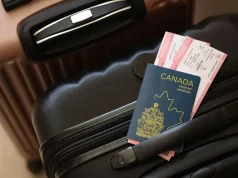
In today’s digital age, online gambling has become increasingly popular, offering players a convenient way to engage in various forms of betting, from poker and sports wagering to casino games and lotteries. However, the legal landscape surrounding online gambling varies widely across different countries, making it essential for travelers to understand the laws and regulations before participating. Whether you’re a seasoned gambler or just looking to enjoy a casual game while traveling, knowing the online gambling laws in your destination can help you avoid legal trouble and ensure a safe, enjoyable experience.
This blog will explore the complexities of online gambling laws around the world, highlight regions where online gambling is regulated or prohibited, and provide tips for travelers to navigate the global landscape of online betting.
1. Understanding the Legal Landscape of Online Gambling
The legality of online gambling varies significantly from one country to another. While some nations fully regulate and legalize real money gambling sites, others impose strict restrictions or outright bans. Additionally, laws can differ based on the type of gambling, such as sports betting, poker, or online casinos. For travelers, this creates a confusing patchwork of regulations to navigate.
When exploring online gambling laws, travelers should be aware of three main categories:
- Regulated markets: In these countries, online gambling is legal, and operators must obtain licenses to offer their services. Players in these regions are typically protected by consumer protection laws and regulations.
- Prohibited markets: Some countries have completely banned online gambling, making it illegal for operators to offer services and for residents to participate.
- Gray markets: In certain regions, online gambling laws are either unclear or not strictly enforced. Players may find themselves in a legal gray area, where gambling is neither explicitly legal nor illegal.
2. Countries with Regulated Online Gambling
Many countries have chosen to regulate online gambling, ensuring that players have access to safe and secure platforms while the government benefits from taxation and oversight. These countries typically require operators to obtain licenses and adhere to strict regulations that protect players.
A. United Kingdom
The UK is one of the most well-regulated online gambling markets in the world. The UK Gambling Commission (UKGC) oversees all forms of online gambling, including casinos, sports betting, and poker. Operators must be licensed by the UKGC to offer services to UK residents, ensuring that players can enjoy a fair and transparent gambling experience. Travelers in the UK can freely participate in online gambling through licensed platforms without legal concerns.
B. Canada
Canada’s approach to online gambling is a bit more complex. While the federal government does not regulate online gambling, individual provinces have the authority to do so. For example, Ontario operates its own online gambling platform, PlayOLG, while other provinces offer various forms of online gambling. Additionally, offshore operators are not specifically prohibited, so Canadians can access international gambling sites without fear of prosecution.
C. Australia
Australia has strict regulations surrounding online gambling through the Interactive Gambling Act (IGA). The IGA prohibits online casinos and poker, but allows sports betting, provided that the operators are licensed and based in Australia. However, Australian players are not prosecuted for gambling on offshore sites, making it a gray area for travelers.
D. European Union
Many countries within the European Union (EU) have chosen to regulate online gambling at the national level. Countries like Spain, France, Italy, and Germany have established licensing frameworks that ensure operators adhere to consumer protection standards. The Malta Gaming Authority (MGA) is also a significant regulator in Europe, issuing licenses to operators across the EU. Travelers in Europe can typically gamble online freely, provided they use licensed operators within the region.
3. Countries with Prohibited Online Gambling
While some countries embrace the online gambling industry, others take a more prohibitive stance, banning online gambling altogether. In these regions, both operators and players may face legal consequences for participating in online betting activities.
A. United States
The legal status of online gambling in the United States is complex and varies from state to state. Federally, the Unlawful Internet Gambling Enforcement Act (UIGEA) prohibits financial institutions from processing transactions related to online gambling, but it does not make online gambling itself illegal. Several states, including New Jersey, Pennsylvania, and Nevada, have legalized online gambling, allowing residents to gamble on state-regulated platforms. However, in other states, online gambling remains illegal. Travelers in the US should research the specific laws of the state they are visiting before participating in online gambling.
B. China
China has some of the strictest gambling laws in the world, and online gambling is completely prohibited. The government has taken significant steps to block access to international gambling sites and prosecute those who participate in online betting. Travelers in China should avoid any form of online gambling, as penalties for breaking the law can be severe.
C. India
India’s online gambling laws are complicated and vary by state. Some states, like Sikkim, have legalized online gambling, while others have banned it outright. The lack of a clear national framework creates confusion for players and operators. Travelers to India should carefully research the laws in the state they are visiting to avoid legal complications.
D. Saudi Arabia
In Saudi Arabia, gambling in all forms is strictly prohibited due to religious beliefs. The country enforces these laws rigorously, and engaging in online gambling can result in harsh penalties. Travelers to Saudi Arabia should refrain from any online gambling activities while in the country.
4. Navigating the Gray Areas of Online Gambling
In certain regions, online gambling exists in a legal gray area, where the laws are either unclear or not strictly enforced. In these markets, players may be able to gamble online without legal consequences, but they do so at their own risk.
A. Japan
Japan has strict laws against most forms of gambling, but online sports betting on horse racing and certain motor sports is allowed. However, there is no specific regulation around online casinos, which has led to a gray market where players can access offshore sites without fear of prosecution.
B. Russia
Russia has banned most forms of online gambling, but offshore sites continue to operate and serve Russian players. The government has taken steps to block access to these sites, but enforcement is inconsistent. Travelers in Russia may still find access to international gambling platforms, but should be cautious, as the legal landscape is unpredictable.
C. Mexico
Mexico is another country where online gambling exists in a gray area. While there are no specific laws prohibiting online gambling, the industry remains largely unregulated. Players can access international sites without legal issues, but the lack of regulation means consumers have less protection.
5. Tips for Travelers Engaging in Online Gambling
When traveling, staying informed about the local gambling laws is important to avoid any legal issues. Here are a few tips for safely participating in online gambling while traveling:
- Research Local Laws: Before gambling online in a foreign country, research the specific laws and regulations to ensure that online gambling is legal and that you are using a licensed operator.
- Use Trusted Platforms: Stick to well-known and regulated online gambling platforms to ensure that your money and personal information are secure.
- Use VPNs with Caution: While VPNs (Virtual Private Networks) can help you access online gambling sites from restricted regions, using them may still be illegal in some countries. Always check local laws before using a VPN for online gambling.
- Stay Within Legal Boundaries: Avoid trying to bypass local gambling restrictions, as this can result in fines, penalties, or even imprisonment.
Conclusion
As online gambling continues to grow worldwide, understanding the legal landscape is essential for travelers who wish to engage in online betting. Whether you’re visiting a country with regulated, prohibited, or gray market gambling, knowing the laws will help you make informed decisions and enjoy a safe, legal gambling experience. By staying informed and using licensed platforms, travelers can gamble responsibly and avoid legal pitfalls.





